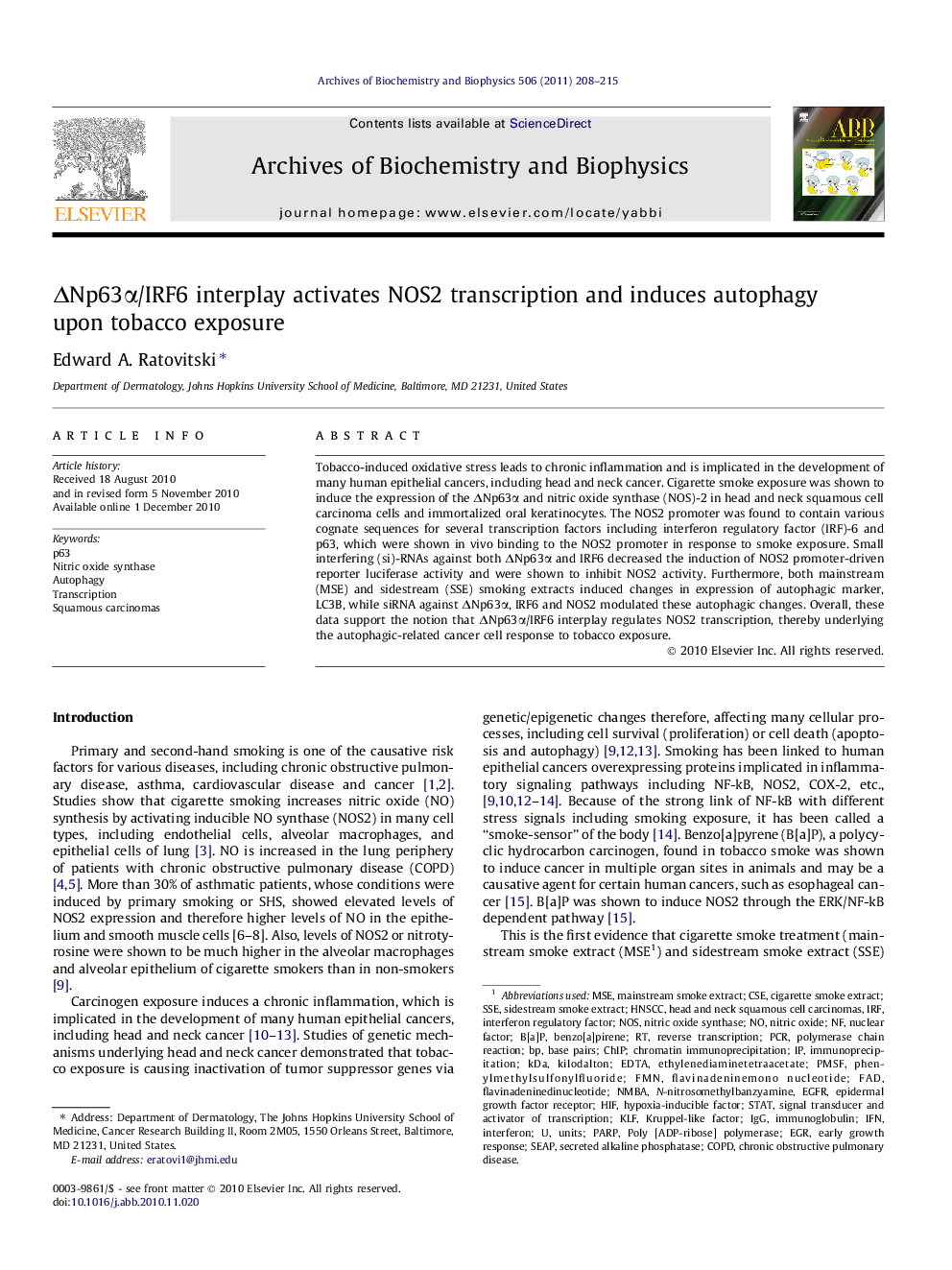| کد مقاله | کد نشریه | سال انتشار | مقاله انگلیسی | نسخه تمام متن |
|---|---|---|---|---|
| 1925799 | 1536419 | 2011 | 8 صفحه PDF | دانلود رایگان |

Tobacco-induced oxidative stress leads to chronic inflammation and is implicated in the development of many human epithelial cancers, including head and neck cancer. Cigarette smoke exposure was shown to induce the expression of the ΔNp63α and nitric oxide synthase (NOS)-2 in head and neck squamous cell carcinoma cells and immortalized oral keratinocytes. The NOS2 promoter was found to contain various cognate sequences for several transcription factors including interferon regulatory factor (IRF)-6 and p63, which were shown in vivo binding to the NOS2 promoter in response to smoke exposure. Small interfering (si)-RNAs against both ΔNp63α and IRF6 decreased the induction of NOS2 promoter-driven reporter luciferase activity and were shown to inhibit NOS2 activity. Furthermore, both mainstream (MSE) and sidestream (SSE) smoking extracts induced changes in expression of autophagic marker, LC3B, while siRNA against ΔNp63α, IRF6 and NOS2 modulated these autophagic changes. Overall, these data support the notion that ΔNp63α/IRF6 interplay regulates NOS2 transcription, thereby underlying the autophagic-related cancer cell response to tobacco exposure.
Research highlights
► Tobacco exposure induces expression of ΔNp63α and NOS2 in head and neck squamous cell carcinoma cells.
► Tobacco exposure promotes binding of ΔNp63α and IRF6 to the NOS2A promoter.
► Tobacco exposure increases the complex formation between ΔNp63α ETS, NF-YA, IRF6 and C/EBPβ factors.
► siRNA against ΔNp63α, IRF6 or NOS2A modulate the tobacco smoke-induced autophagy.
Journal: Archives of Biochemistry and Biophysics - Volume 506, Issue 2, 15 February 2011, Pages 208–215